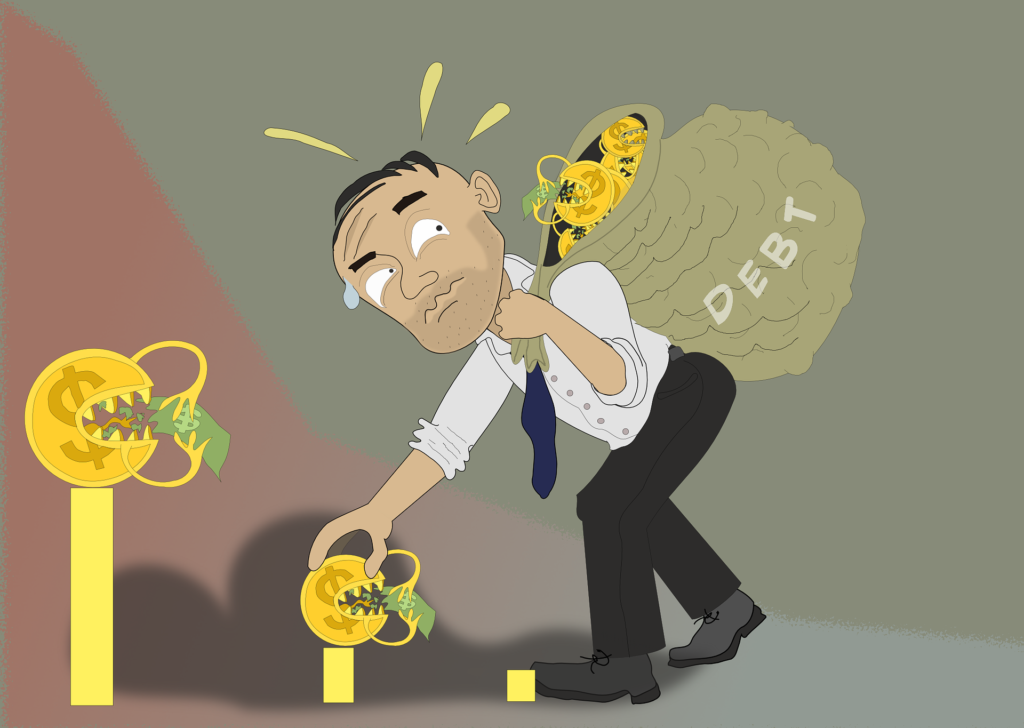Egypt is facing profound economic challenges in the current fiscal year 2023/2024 (July 2023-June 2024) due to the lingering repercussions of the European geopolitical crisis that erupted 18 months ago.
These economic difficulties are hindering the country’s ability to fulfill its commitments under the $3 billion loan agreement with the International Monetary Fund (IMF) and intensifying pressures related to the ongoing significant US dollar shortage, soaring inflation, and declining Foreign Direct Investments (FDIs).
As outlined in the EGP 3 trillion FY2023/2024 plan, the government has revised its projection for real GDP growth from 5% to 4.1%. The plan aims for a targeted 7% budget deficit, 2.5% initial surplus, and EGP 2.14 trillion in revenues.
The challenging economic situation prompted the government to announce plans in July to make progress in its long-awaited initial public offering (IPO) program, with the aim of replenishing its US dollar liquidity to reach $191 billion by 2026.
Alia Akram, International Markets Strategist at Naeem Holding, commented, “Egypt is going through stifling economic challenges, and it really needs to take urgent and necessary measures to overcome.”

Deeper roots
Since March 2022, when the war in Ukraine began, over $20 billion in hot money has exited the Egyptian market, leading to a severe US dollar shortage domestically. Inflation has surged to record levels, the Egyptian pound has significantly depreciated, and Egypt’s debt has started to rise, surpassing 92% of GDP, primarily due to higher US dollar rates.
Akram explained that while external factors like the COVID-19 pandemic and the Russian-Ukrainian conflict have played a role, Egypt’s crisis has deeper roots. Policies that deter private investment, domestic and foreign, increased bureaucracy, government intervention in various economic activities, and rising costs have contributed to the current situation.
“Overcoming this challenge is linked to the ability to pay international liabilities without delay or default, and avoiding the social risks resulting from the ongoing economic crisis,” she said. “As long as these two goals are achieved, the country’s economic crisis would be under control and be on its way to a solution,” Akram stressed.
Akram emphasized that addressing the crisis requires more than short-term solutions, such as selling assets and amending laws. A fundamental shift in economic and social policies is needed to rebuild investor confidence in Egypt’s economy, restore purchasing power to its citizens, and counter the effects of inflation.
Over the past 17 months, the three major credit rating agencies; S&P Global, Moody’s, and Fitch Ratings, have downgraded Egypt’s credit rating with a negative outlook as a result of the harsh economic implications the country is experiencing, chiefly the US dollar shortage and debt rising level.
In a recent report, Goldman Sachs estimated that Egypt needs to secure a US dollar reserve of $5 billion to address its balance of payments. This assessment comes at a time when the Egyptian pound is experiencing its weakest performance on record. In the parallel market, the US dollar is trading at EGP40 per dollar, significantly diverging from the official market rate of close to EGP31 per dollar.
“Success in addressing the crisis is real and tangible when the economy returns to attracting investment, competing in global markets, encouraging the expansion of factories, farms, and hotels, and protecting investors from the potential risks of government interference in their businesses and the unfair competition in the local market,” Akram asserted.
Furthermore, Akram emphasized the government’s responsibility to mitigate the surge in commodity prices, ensure adequate wage levels, and create fulfilling employment prospects that enable young individuals to cultivate a promising future and enjoy a decent quality of life.
Untangling the knot
Yasmine Ghozzi, senior economist for Middle East and North Africa (MENA) Economics and Country Risk at S&P Global, highlighted the challenges of inflation and a weakened local currency. In July 2023, inflation reached a new high of 36.5% year-on-year. Ghozzi anticipated that inflation would continue to rise, driven by increased electricity tariffs, supply bottlenecks, and further depreciation of the Egyptian pound.
Food inflation is also expected to remain elevated due to rising wheat and rice prices resulting from global factors, such as Russia’s withdrawal from the Black Sea Grain Initiative and India’s ban on rice exports.
Ghozzi projected that headline inflation could peak near 39% year-on-year in October 2023 and end the year at nearly 35%, decreasing to around 20% in 2024.
Regarding the performance of the Egyptian pound, Ghozzi expected it to weaken from EGP30.9 per USD to EGP37.00 per USD by the end of 2023.

In response to these challenges, Egypt has devalued the Egyptian pound against the US dollar three times since March. Ghozzi believed further interest rate hikes were necessary to address inflation and transition to a flexible foreign exchange (FX) regime as outlined in the IMF loan agreement.
“Further hikes are warranted if Egypt is to progress towards a monetary policy framework that is focused on gradually reducing inflation and transitioning to a flexible FX regime as specified in the IMF loan deal for Egypt,” said Ghozzi
S&P Global anticipated additional rate hikes of 2% and 1% in September and November, respectively, reaching 21.25%. Another FX adjustment is expected around September-October, coinciding with the IMF review.
“We have factored in a 5% (500 basis points) increase for 2023, of which 300 basis points have already been implemented. With the first review still pending, we believe that the government’s progress in the IMF program will be crucial. We anticipate that our base scenario is more likely to materialize if we witness a significant improvement in the CBE’s net reserves, propelled by a robust tourism season and further advancements in IPO deals. The recent conclusion of a $1.65 billion foreign exchange deal in early July, along with the announcement of a potential $1 billion, are positive indicators,” emphasized Ghozzi.
Success in overcoming these economic challenges will require a comprehensive shift in economic policies, restoring investor confidence, addressing inflation, and creating rewarding job opportunities, noted Akram. This transformation is vital to secure Egypt’s economic stability and long-term recovery.







